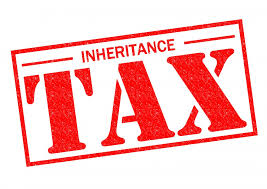“Inheritance Tax for Non Residents after the Judgment 3rd September 2.014 of The Court of Justice of The European Union.
– The fiscal treatment between Residents in Spain and Residents in any other country of the European Union regarding Inheritance Tax has become equal, after the Court of Justice Judgement and the Spanish Inheritance Tax Law amendment.
– Taxpayers can claim the refund on Inheritance Tax paid in excess prior to the mention Judgment.”
The recent Judgement dated September 3rd 2014 made by the Court of Justice of the European Union (C-127/12) has had very relevant implications for Non Residents in relation to the Spanish Inheritance Tax. Therefore, it is worthwhile to briefly look into the mention judgment and its practical consequences.
The Gift Tax is also affected by the said ruling, but this article is focused on Inheritance Tax.
The Inheritance Tax in Spain is regulated by a National Law (Law 29/1987, of December 18th for Inheritance and Gift Tax).
However, Autonomous Regions, including Andalucia, have been empowered to introduce tax reductions and exemptions to State Law. So it states in articles 32 and 48 of Law 22/2009, dated December 18th, that regulates the System that finances the Autonomous Communities, currently in force. And they have used this legislative power, reducing in one way or another the mention tax for their residents.
Therefore, the transfer of legislative power to Autonomous Regions has created a quite complex situation with many different legislations for Inheritance Tax inside Spain. We should keep in mind that the difference between them may be very significant.
Out of these legislations, the national is the most burdensome. In other words, the highest taxation comes from State Law.
Before the Judgment of the Court of Justice of the European Union, the rule was quite simple: if any of the parties, either the deceased or the heir, were non- resident in Spain, the taxpayers would always be subject to State law; the most burdensome.
Therefore, under the same conditions, a Non-Resident would always have to pay more Inheritance Tax than a Resident in Spain.
This was the situation before the 3rd of September 2014 when the Court of Justice ruled against the Spanish Inheritance Tax Law in Case 127/2012.
The Court of Justice considered that this unequal treatment, between Residents and Non- Residents, broke the EU LAW (violation of articles 63 of the Treaty of Functioning of the European Union and article 40 of Agreement on the European Economic Area) because the mention discriminatory treatment went against free movement of person and free movement of capitals. Two main principles of European Union´s Single Market.
Therefore, based on this Judgment, Spain had to amend its internal/domestic legislation to comply with the EU Law. In other words, Spain had to eliminate the discriminatory treatment between Residents and Non-Residents with respect to the Spanish Inheritance Tax.
We believe which the Spanish Government has complied with the Judgment partially, because it has corrected the situation between Spanish Residents and other European Residents but not with respect to Non- European Residents.
When we refer to European Residents, we mean Residents in the EU, Lichenstein, Norway or Iceland since these countries are also affected by the amendment as they are part of the European Economic Area.
The said Inheritance Tax amendment came into force on January first, 2015 (Law 26/2014, in its thrid additional Provision, modifying additional priovision Two of Law 29/1987 of December 18tgh on Inheritance and Gift Tax)
It is time to ask ourselves the following question: May European Residents taxpayers request a refund on inheritance tax paid in excess prior to the judgment?
The answer is affirmative because the effects of the judgment are retroactive.
Therefore, the European Residents taxpayers, who have settled the Spanish Inheritance Tax according to State Law, can claim back overpaid tax.
Especially, if four years have not passed since the said tax was paid. In those cases, an administrative file of undue income is the proper procedure to claim back the amounts paid in excess.
Anyhow, a case by case professional analysis will be required since the amounts at stake could be very relevant.

